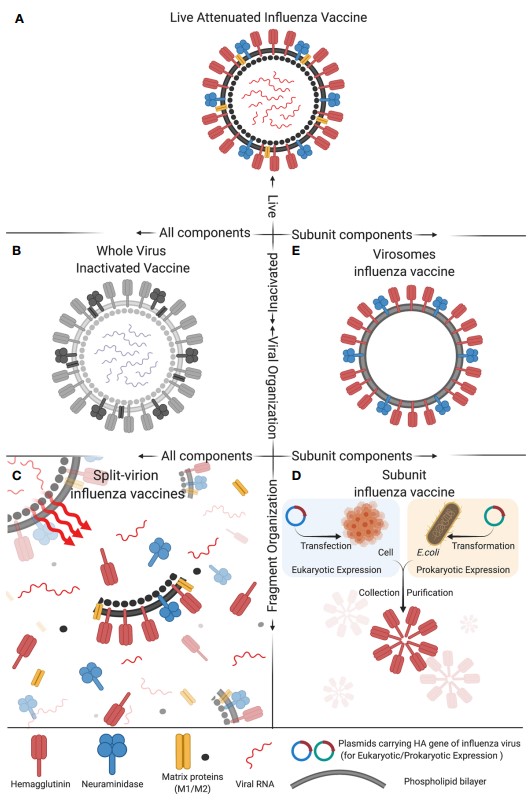Vaccine Antigen Investigation Service for Infectious Disease Research
Vaccine antigen investigation is a core step in anti-infect vaccine discovery and is of great value in vaccine development for infection prevention. In this process, thorough research and precise modulation of antigenic properties and optimization are the keys to a successful vaccine. Creative Biolabs can provide a vaccine antigen investigation service to clients from all over the world.
Vaccine Antigen Types
-
Microbial antigens. Microbial antigens include bacteria, viruses, fungi and parasites. Their antigenicity is usually derived from their components such as cell walls, pod membranes, extracellular polysaccharides, cytoplasmic proteins and surface proteins. These antigens stimulate the organism to produce a specific immune response.
-
Tumor antigens. Tumor cells usually express some antigens that are different from normal cells, such as tumor-associated antigens and tumor-specific antigens. These antigens can be used as targets for tumor vaccines or for tumor immunotherapy, which can recognize and kill tumor cells.
-
Live attenuated vaccine antigens. Pathogens of live attenuated vaccine antigens are treated to make them less virulent but still retain their immunogenicity.
-
Inactivated vaccine antigens. Inactivated vaccine antigens are those that have had their pathogens killed by physical or chemical means, but still retain their immunogenicity.
-
Genetically recombinant vaccine antigens. Recombinant vaccine antigens are novel antigens obtained by recombining and re-expressing pathogen genes with genetic engineering techniques.
-
Nucleic acid vaccine antigen and vector vaccine antigen. Vaccine antigens are produced through genetic engineering of pathogen genes embedded in vectors, which are then introduced into human cells to be expressed.
 Fig. 1 Different types of influenza vaccines feature various antigenic compositions.1
Fig. 1 Different types of influenza vaccines feature various antigenic compositions.1
Vaccine Antigen Detection Assays
-
Immunofluorescence. It is a highly sensitive antigen detection method that uses antibodies labeled with a fluorescent dye to bind to antigens in the sample, which are then observed under a fluorescent microscope.
-
Enzyme-linked immunosorbent assay. Commonly used for antigen detection, this method utilizes a change in signal, such as a change in color or a change in fluorescence intensity, when an antibody binds to an antigen.
-
Serology-based antigen detection. With this method, serum samples are tested for the presence of antibodies against specific antigens. It is relatively simple to perform and results can be obtained quickly. However, the results need to be interpreted with caution as the presence of antibodies in the serum may be affected by a number of factors, such as immunization status, timing of vaccination, etc.
-
Cytology-based antigen detection. It detects the presence of an immune response against a specific antigen in cell samples, and is able to directly observe the response of immune cells, reflecting the immune status more accurately.
-
Genetics-based antigen detection. It detects the presence of genetic variants associated with specific antigens in genetic samples, which can help predict the immune response to specific antigens by understanding the immune status at the genetic level.
Significance of Vaccine Antigen Investigation
-
Vaccine antigen investigation is essential for vaccine development. The ideal vaccine antigen, such as a fragment of a virus, should be able to trigger the immune system to produce an immune response against the intact virus.
-
The antigen selection has a direct impact on the effectiveness of the immune response, as the wrong antigen may lead to inadequate or excessive immune response, or even cause adverse reactions.
-
Optimization of antigens is also critical since immune system responses are complex and varied as well as the emergence of new pathogens, the properties and number of antigens need to be precisely tuned to maximize the response to new pathogen variants.
Creative Biolabs provides a vaccine antigen investigation service to identify potential vaccine antigens to advance research in the development of novel vaccines to combat infectious diseases. With our expertise and extensive technology platform, we would help in identifying and evaluating vaccine antigens, thereby increasing the likelihood of success in your vaccine development. Please contact us to discuss your vaccine antigen investigation project.
Reference:
-
Chen, Jidang, et al. "Advances in development and application of influenza vaccines." Frontiers in immunology 12 (2021): 711997.
For Research Use Only. We do not provide direct services or products for patients.
Related Services:
 Fig. 1 Different types of influenza vaccines feature various antigenic compositions.1
Fig. 1 Different types of influenza vaccines feature various antigenic compositions.1